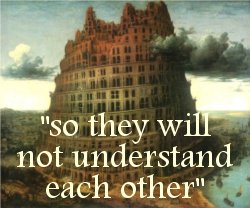What Did You Used to Believe?
 Some years ago, a college student asked me, “what did you used to believe?”
Some years ago, a college student asked me, “what did you used to believe?”
I didn’t understand the question until she clarified, “what did you believe when you were my age that you don’t believe any more?”
It remains one of the best questions I’ve ever been asked.
Lots of things came to mind, but I chose what I thought — and continue to think — is the most important one: I used to think that most people were more or less like me.
I know that that borders on hubris and egotism, but there it is. I used to think that all it took to understand someone halfway around the world was to reflect on my own upper-middle class life in New York.
Obviously, there were differences: financial, cultural, religious, and more. Some people owned private jets and others couldn’t afford dinner. Some children grew up with families in homes and others on the street. Some religious leaders worshiped one god and others worshiped many or none at all. Some languages and cultures demanded formality while others all but precluded it. And so forth.
But I thought that when it came to what really mattered, most people were certainly like me. And — the other side of the same coin — I thought that I could figure out the differences without leaving my home.
I was the modern anthropological equivalent of the 19th-century armchair scientist.
Having now met some of the people I thought were just like me, I believe that I vastly underestimated the range of human diversity. Even my neighbors sometimes exhibit surprising variation. It was folly to think that I understood the people living in war-torn Sudanese refugee camps, imperial Japanese courts, child militias, Tibetan monasteries, remote arctic settlements, etc. — all without ever meeting them or talking with them.
All of this is on my mind as I watch violence flare in the Holy Land.
I learned long ago that even when people disagree — perhaps especially when people disagree — it’s important to ask, “what does the other side believe?”
I fear that in the present case, we have spent too much energy following the ethnocentric path that assumes that “they” are just like “us,” and put not enough resources into really understanding what the other side believes.
It may not help. To pick the obvious and trite example, understanding Hitler would not (I hope!) have made anyone less inclined to defeat him.
But we won’t know until we try.




And God made the coin with two sides and decided it was good…